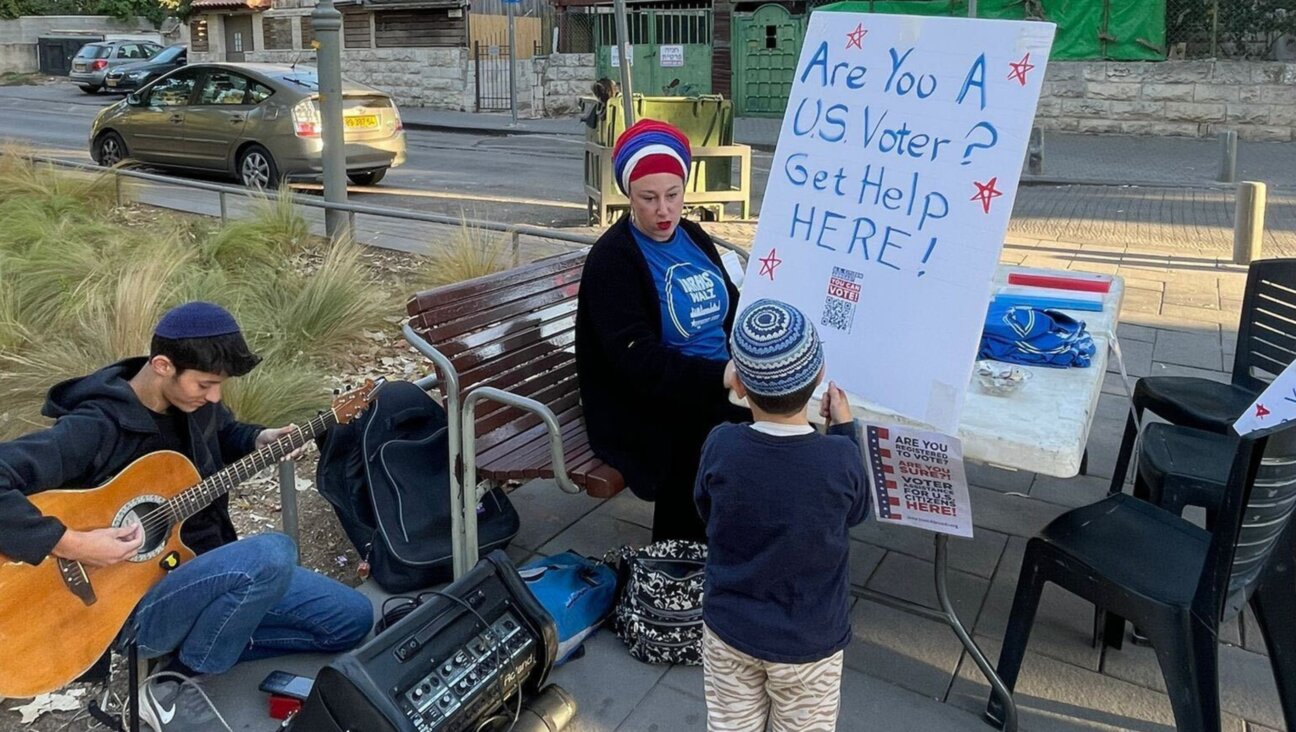Willie Rapfogel’s Downfall in Scandal Means Murky Future for Jewish Programs

Sudden Fall: William Rapfogel took decades building up a political network that delivered funding to Jewish poverty programs in good years and bad. What happens now that he is gone? Image by met council
Until just a few days ago, William Rapfogel was considered New York Jewry’s poverty czar, and his deep connections to the city’s political class were viewed as one of the prime assets of the Metropolitan Council on Jewish Poverty, which he long headed.
Rapfogel’s abrupt firing amid the disclosure of a criminal investigation into his financial dealings could now make it harder to get government funds to poor Jews, some officials say.
“Whenever you lose someone with that kind of expertise, you lose a relationship base that was developed over years and that provided significant dividends to the community,” said Hank Sheinkopf, a Democratic political consultant.
While Sheinkopf said he thought that the Met Council would be able to maintain its relationships with elected officials without Rapfogel, others were less sanguine.
“Willy has been the go-to guy for many Jewish community organizations, and in his absence a vacuum exists,” said one Jewish lobbyist active in New York. “It’s unclear how it will be filled, but until is, it is that much harder to get resources for Jewish families struggling in the grips of poverty.”
The scandal comes months after the publication of a major report showing that Jewish poverty has grown enormously in the New York area in recent years. The Met Council’s anti-poverty services rely heavily on government grants, which Rapfogel’s formidable political ties helped attract. Those ties will no longer be available to the Met Council, or to the dozens of smaller social service organizations that it supports.
It was the board of the Met Council itself that alerted law enforcement authorities to alleged financial irregularities involving Rapfogel. According to board member Menachem Lubinsky, the board fired Rapfogel on August 8 soon after learning from its own executive committee about the suspected improprieties.
The matter is now under investigation by the New York state comptroller’s office in cooperation with the state attorney general’s joint Task Force on Public Integrity.
Even at this stage, it’s not clear exactly what Rapfogel is accused of doing. The Met Council said only that the alleged misconduct related to the organization’s insurance contracts. Rapfogel issued an apology on August 12, but did not specify what he was apologizing for.
“I deeply regret the mistakes I have made that have led to my departure from the organization,” Rapfogel wrote in a statement issued by his attorney. “I pray that my family and friends and all who care about the Met Council can find it in their heart to forgive me for my actions.”
Various news outlets have reported that the alleged scheme involved donations to political candidates. The Daily News also alleged that Rapfogel pocketed kickbacks from an insurance company doing business with the Met Council.
One communal official brushed off the notion that the Rapfogel scandal would scare elected officials away from Jewish organizations. “We still deal with the stock market even though there’s always scandals,” said Agudath Israel of America’s Rabbi Shmuel Lefkowitz, the Orthodox organization’s Albany representative. “The elected officials will go on. There’s a lot of industries that have problems, but life goes on.”
Rapfogel was uniquely a well-connected and influential figure in the New York political scene. “Willy is the prince of the Jews,” said one lobbyist in Jewish communal affairs who asked not to be named to protect relationships. “He’s more powerful than most elected officials.”
That power came from his 21 years at the helm of the Met Council, where he assiduously cultivated relationships with politicians, and many years of communal and governmental experience prior to that.
It also came from his deep roots on the Lower East Side. Rapfogel is a close ally of Lower East Side political don Sheldon Silver, the speaker of the New York State Assembly and among the two or three most powerful men in Albany for the past twenty years. Rapfogel’s wife Judy is Silver’s chief of staff. The two men are members of the Bialystoker Synagogue, a major neighborhood institution, where Rapfogel is on the board. And they make up two-thirds of a well-known troika of neighborhood power brokers that dominated local politics along Grand Street for decades.
In a statement, Silver described himself as “stunned and deeply saddened” by the news of Rapfogel’s firing.
Prior to his position at the Met Council, Rapfogel headed the Orthodox Union’s Institute for Public Affairs served as executive director of the American Jewish Congress’ New York Metropolitan Region and worked for several years as an assistant comptroller for the City of New York.
Rapfogel used his accumulated influence and his many relationships to attract millions of dollars each year in government grants for his own organization and for the smaller Jewish community councils and Jewish social service groups that rely on the Met Council. Government funds make up between a half and a third of the Met Council’s operating budget each year. The group reported receiving $11.5 million in government grants in 2010 and $15.5 million in 2009.
That’s a lot for a locally focused not-for-profit. The Met Council got $3.6 million in discretionary funding from the New York City Council between 2009 and 2013, more than all but 30 of the more than 3,000 not-for-profits and governmental entities that received discretionary funding in that period.
The Met Council’s own anti-poverty programs include senior housing, family services, and food aid. Those efforts are central to the New York Jewish community’s anti-poverty work, which have gained increased attention since the June publication of a report by UJA-Federation of New York which found that one out of every five Jews in the New York area is poor. The number of poor Jews has nearly doubled since 1991, from 169,000 to 308,000, the report stated.
Rapfogel was a member of the committee that guided the creation of the report. In a June interview timed to its publication, Rapfogel told the Forward of a raft of anti-poverty efforts his organization was pursuing. They included outreach to poor families, job programs, and affordable housing.
While Rapfogel is gone from the Met Council, his power has yet to wholly fade. Rapfogel’s wife continues to hold a highly influential position at Silver’s side in Albany, leaving some wary of speaking on the record about his firing and its implications.
And Rapfogel still has strong public defenders. Heshy Jacob, the third member of the Lower East Side power troika and a highly influential figure in that neighborhood, praised Rapfogel on August 12. “He is one of the most decent human beings in the world,” Jacob said. “This is a man who has helped the poor his entire life.”
Jewish communal insiders almost exclusively reported shock at the news of Rapfogel’s firing and his apology. “That was the last thing I would have expected,” said Ezra Friedlander, CEO of the New York City-based Friedlander Group, a lobbying firm. “The very last thing.”
Despite having been at the helm of the Met Council since 1992, Rapfogel cultivated no obvious successor. Current top executives include Ilene Marcus, the group’s chief of staff, who worked as a special assistant to the Mayor during Rudolph Giuliani’s administration.
The Met Council said on August 12 that no employees besides Rapfogel had yet been implicated in the alleged financial misconduct, though the investigation is ongoing.
A message from our CEO & publisher Rachel Fishman Feddersen

I hope you appreciated this article. Before you go, I’d like to ask you to please support the Forward’s award-winning, nonprofit journalism during this critical time.
At a time when other newsrooms are closing or cutting back, the Forward has removed its paywall and invested additional resources to report on the ground from Israel and around the U.S. on the impact of the war, rising antisemitism and polarized discourse..
Readers like you make it all possible. Support our work by becoming a Forward Member and connect with our journalism and your community.
— Rachel Fishman Feddersen, Publisher and CEO
























